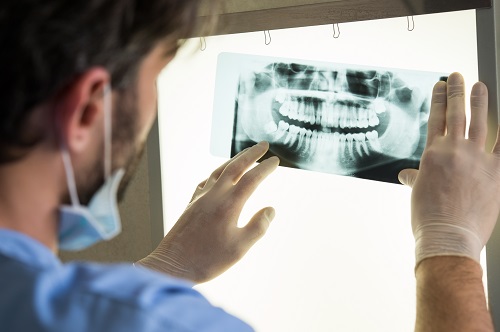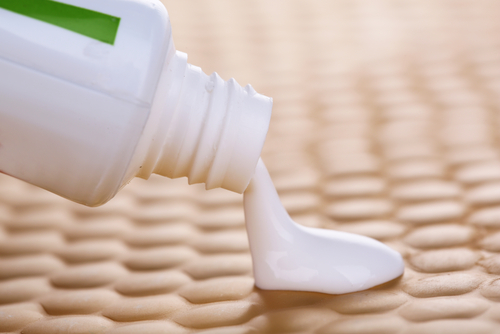
Dental x-rays are a vital diagnostic tool used to properly identify any underlying conditions that may not yet be visible on the surface. At our dental offices in Middletown, Kettering, and West Chester, we perform dental x-rays only as often as necessary, which can vary from patient to patient depending on their oral needs and health history. We also understand our patients may have questions regarding dental x-rays, and we’d like to answer them so you can make the best informed decisions about your health.
Intraoral & Extraoral
Dental x-rays, or radiographs, are usually separated into two categories — intraoral and extraoral. Intraoral x-rays mainly focus on the details of the teeth themselves. While extraoral x-rays still showcase the teeth, the aim of these photos is to look at the bigger picture of the teeth within the jaw and skull.
A Closer Look at Intraoral X-Rays
We already know that intraoral x-rays focus on teeth. They’re also the most common types of x-rays and can help:
- Find cavities
- Check bone health around teeth
- Detect gum disease
Bitewing x-rays are the most frequently used intraoral x-rays. They allow your dentist to see cavities in between teeth that aren’t yet visible on the surface. The images produced from bitewing x-rays also help keep an eye on the wear and tear of any dental restorations, such as a filling or an implant.
Explore Extraoral X-Rays
Extraoral x-rays are less detailed than intraoral images, but still serve a helpful purpose when it comes to looking at:
- Impacted teeth
- The jaw and teeth relationship
- Growth and development
The most common extraoral x-rays are panoramic x-rays. These images show the entire set of teeth as well the jaws in one photo. Panoramic x-rays are great when looking at tooth development or wisdom teeth eruption and can help identify problems with the jaw (TMJ).
We recommend visiting our Middletown, Kettering, and West Chester dental offices at least every six months. We may not perform x-rays at every appointment unless it’s necessary, but visits twice a year are recommended so we’re able to catch problems early, making them easier, and often less costly to treat.


 Review Us
Review Us Review Us
Review Us







